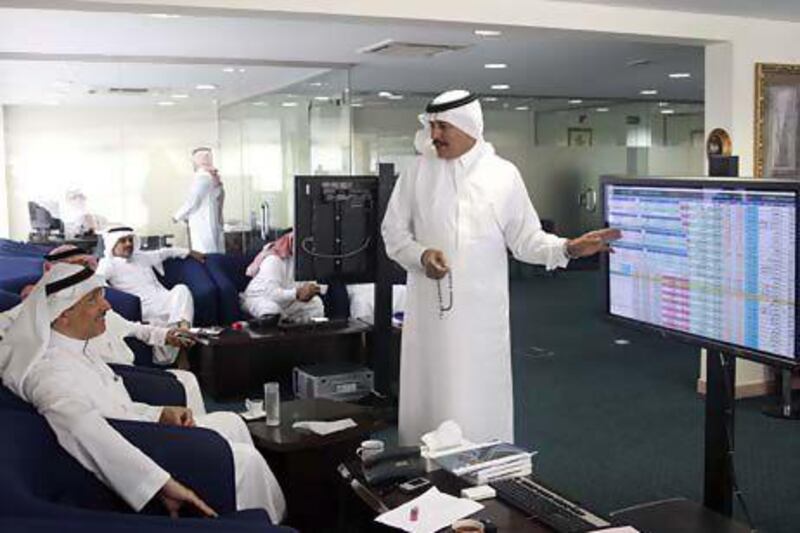Saudi Arabia's market regulator yesterday outlined stricter disclosure rules for companies in a move seen as the latest sign the Arabian Gulf's largest stock exchange may be close to opening up to foreign investors.
The requirements, which expand on regulations dating from 2006, advise companies to notify investors of any developments that effect their financial performance, the Capital Market Authority (CMA) said. The action was designed to make the market more transparent, it added.
"This is an additional step towards opening the market [to foreign investors]," said John Sfakianakis, the chief investment strategist of the Riyadh-based investment firm Masic. "The sum of all the recent moves will help and although we don't know when the market will open up, this is a positive."
After years of false dawns, expectations foreign investors will soon be allowed unfettered access to the Tadawul have risen among executives and fund managers in recent months.
In February, Mohammed bin Abdulmalik Al Sheikh, a former World Bank executive and regarded by observers as more receptive to foreign investors than his predecessor, was appointed as head of the CMA. He was quoted as saying in May that the kingdom was working on a regulatory framework to allow foreigners to hold stocks. Currently, foreigners have limited opportunities to invest through equity swaps and exchange-traded funds.
The measures, detailed by the CMA on the Saudi Press Agency website yesterday, include outlining the basic data companies must provide in all disclosures and a warning not to hide or exclude information from investors.
The measures told companies to give a reason if they did not provide the financial impact of any large announced development.
Ali El Adou, portfolio manager at The National Investor in Abu Dhabi, said the action was important in helping to bring transparency in the market up to the standard of developed and emerging markets.
"This will create awareness for investors wanting to know more about companies and understand their future plans and projects," he said.
"More knowledge and understanding about companies will reflect positively on share prices."
Mr Al Sheikh has made it clear he wants to attract more institutional investors. Such investment tends to be more stable and longer-term than retail investors, which dominate about 90 per cent of current market activity.
The CMA has limited each stock's rise on its first day of trading at 10 per cent and has suggested it will take action against companies if their losses are more than 50 per cent of their capital.
Saudi Arabia's bourse has a market capitalisation of more than US$383 billion, with more than 150 companies listed.
The kingdom was excluded from a decision in June by international index compiler MSCI to upgrade that UAE and Qatar to emerging market status, a move promising greater access to foreign funds. Saudi Arabia does not meet MSCI's criteria on foreign investment for inclusion in even the lower-ranked frontier markets index.





